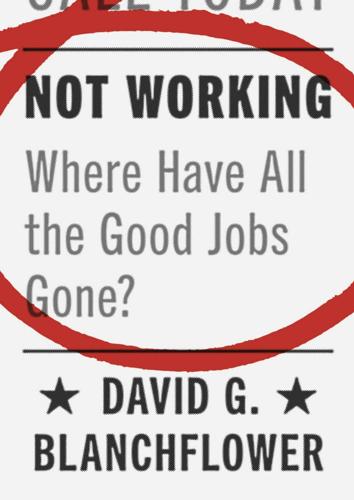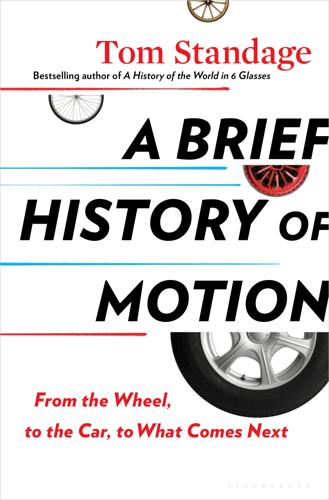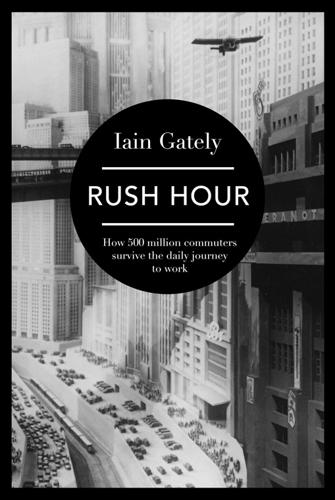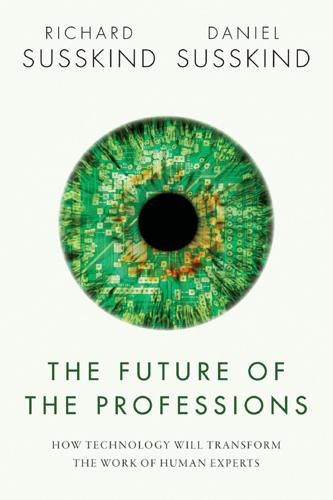
Not Working: Where Have All the Good Jobs Gone?
by
David G. Blanchflower
Published 12 Apr 2021
Then, it introduces a twist, be it an imperfection or the closing of a particular set of markets, and works out the general equilibrium implications. It then performs a numerical simulation based on calibration, showing that the model performs well. It ends with a welfare assessment.” I have no idea what “haiku-like” rules are or how they can help us understand how an economy works. The man on the Clapham omnibus would, rightly, likely think it was worthless mumbo-jumbo. I have been especially struck by claims celebrating that the practice of macroeconomics is firmly grounded in the principles of economic theory. 35 It would have been much better if macroeconomics had been well grounded in the muddy waters of the data.
…
My PhD supervisor, Bernard Corry, taught me to try to understand the low-side risk of any policy prescription, by which I mean always worry about the consequences if you are wrong. I remember him telling me on numerous occasions that I should be concerned about the welfare of the man or woman commuting on the train or bus or, as he put it, worry about the welfare of the “man on the Clapham omnibus.”1 In part this was to ensure that economists did no harm, and also because Bernard understood that this bus passenger was paying his salary. Interestingly, Clapham is now a pretty prosperous part of London. Bernard always encouraged me to look at the data carefully and to sniff the air. To adopt a more “investigative” approach, if you like: to put the data before the theory.
…
And still nobody has taken his knighthood away, although there was a vote in the House of Commons recently to do just that; they did eventually strip Fred Goodwin, of RBS “fame,” of his in 2012.45 Ordinary people are aware that different rules appear to apply to them. The man (or woman) on the Clapham omnibus just doesn’t understand. Nor should he. I recall listening to billionaire John Cauldwell, who is the cofounder of mobile phone UK retailer Phone 4U, being interviewed on BBC HARDtalk on April 2, 2015 (downloadable from iTunes), about his motivations to get rich. He said he was motivated to make enough money to take care of his family; it was about financial security.

I Never Knew That About London
by
Christopher Winn
Published 3 Oct 2007
The power station has also featured in numerous Doctor Who episodes, in Alfred Hitchcock’s 1936 film Sabotage, and as the scary Ministry of Love in the 1984 film version of George Orwell’s Nineteen Eighty-Four. Clapham The Man in the Street THE EXPRESSION ‘THE man on the Clapham omnibus’, meaning the ordinary man on the street, is attributed to the Appeal Court Judge, Lord Bowen (1835–94). He adapted it from journalist Walter Bagehot’s phrase ‘the bald-headed man at the back of the Clapham omnibus’, used to describe a normal London man, Clapham being regarded in the 19th century as a quiet, unexceptional sort of place. The CLAPHAM SECT was a group of wealthy, evangelical Anglicans who met at Broomfield, William Wilberforce’s home on Clapham Common, on the corner of what is now Broomwood Road, in the late 18th and early 19th centuries.

The Vanishing Face of Gaia: A Final Warning
by
James E. Lovelock
Published 1 Jan 2009
And so the Second World War started with a false alarm; indeed in terms of war nothing much happened on mainland Britain for another nine months. There seems to be a close parallel between the events and the feelings we had then and those now. I was not quite that archetype, the man in the street or on the Clapham omnibus, but was close enough: a young man on a footpath, fairly sure that real war would soon begin even though there were still deniers, among them experts and politicians. Seventy years later events in far places, such as the melting of the Arctic ice, the collapse of glaciers in Antarctica, the droughts and famines across Africa, and the occasional extra‐fierce tropical storm give us now that same anxiety that the war in Spain and the incursion into Bohemia gave in the 1930s.

A Brief History of Motion: From the Wheel, to the Car, to What Comes Next
by
Tom Standage
Published 16 Aug 2021
In Britain, omnibus riders came to be seen as representative of the population at large, thanks to Walter Bagehot, a British political writer who wrote in 1863 that “public opinion … is the opinion of the bald-headed man at the back of the omnibus.” This observation may explain the subsequent adoption by English courts of the hypothetical “man on the Clapham omnibus” as the standard for an ordinary, reasonable person. Compared with previous vehicles, from war chariots to fancy coaches, the omnibus was far more egalitarian. Its popularity signaled the democratization, at long last, of wheeled transport. It had taken more than five thousand years since the invention of the first wheel.

Social Class in the 21st Century
by
Mike Savage
Published 5 Nov 2015
Questioner: So it’s a regional identity, as well, that is as, or more important, to you than … John: It – the regional identity, was to my advantage in certain situations, which I used to play to because they used to put my pointed questions down to Yorkshire brusqueness. One guy who always had me – and I mean I used to sit in the top executive committees on some of the things in the bank, and I know why I was there – I mean, he used to say I was the man on the Clapham omnibus, but no, it was to ask the awkward question, and then they could go out of the meeting and say, ‘Well, it’s just John being obnoxious’ to the guys. Thirty years on, those stereotypes still hold some relevance when glimpsed through the lens of the GBCS, but it has now been overlain by a more nuanced geography.

Is That a Fish in Your Ear?: Translation and the Meaning of Everything
by
David Bellos
Published 10 Oct 2011
Shaw’s stage play Pygmalion, which itself rewrites a far more ancient myth, Professor Higgins asks, “Oh! why can’t the English teach their children how to speak?” We must answer, Oh! but they do, Professor Higgins. They teach them to declare themselves to be Geordies and Aberdonians, Etonians and lads on the Clapham omnibus, ladies from Morningside or fishermen from Newquay. If you are British, you just can’t not notice. Alongside its role as a planetary interlanguage in print, English speech—like any other—is a highly pixelated way of telling people who you are. That is something that all forms of human speech share, and it is perhaps the only thing that is truly universal about language.

Rush Hour: How 500 Million Commuters Survive the Daily Journey to Work
by
Iain Gately
Published 6 Nov 2014
Even in the absence of compulsion, there are good reasons to expect it to persist. It empowers people to separate their work and home lives, and both require face time to function. Unless and until we evolve into creatures that have no such needs, and have erased the desires to hunt and gather from our nature, there will be a Clapham omnibus, or its latter-day equivalent, ferrying people between their places of labour and rest. Unless, of course, we won’t have to work in the future, or companionship goes out of fashion after, say, a deadly global pandemic. Would we then commute for nostalgia, or even pleasure? Has commuting worked its way so deep into our culture that we’d find it hard to give up absolutely?

The Future of the Professions: How Technology Will Transform the Work of Human Experts
by
Richard Susskind
and
Daniel Susskind
Published 24 Aug 2015
We think our isolation of ‘broad features’ falls well short of being traitist. 18 Ludwig Wittgenstein, Philosophical Investigations (1958), See also Downie, ‘Professions and Professionalism’, 147. 19 We use the term ‘lay people’ throughout the book. It is not ideal. But we find it the best of a bad bunch of possible terms. For example, we do not like ‘ordinary people’, ‘non-professionals’, or indeed the lawyer’s ‘man on the Clapham Omnibus’. 20 As Freidson puts it: ‘the claims, values, and ideas that provide the rationale for … professionalism.’ See Eliot Freidson, Professionalism (2001), 105. 21 William Wickenden, A Professional Guide for Young Engineers (1949), 16. 22 Talcott Parsons, ‘The Professions and Social Structure’, Social Forces, 17: 4 (1939), 457. 23 See e.g.

Robot Rules: Regulating Artificial Intelligence
by
Jacob Turner
Published 29 Oct 2018
In other words, the possibility of negligence liability can cause subjects to take into account the externalities of their actions and indeed to price these into their calculations (at least to the extent that such risk can be accurately calculated). 2.1.3 Shortcomings of Negligence How Do We Set Standards for AI’s Behaviour? The key question in negligence is generally whether the defendant acted in the same way as the average, reasonable person in that situation. In old English cases, judges illustrated this idea by asking whether a fictional “man on the Clapham Omnibus” might have done the same thing.26 However, problems arise when the reasonable person test is applied to humans using AI, all the more so to AI itself. One option would be to ask what the reasonable designer or user of the AI might have done in the circumstances.27 For example, it may be reasonable to set a car to operate in a fully autonomous mode on a relatively clear motorway, but not in a hectic urban environment.28 Designers might supply AI with “health warnings” stipulating what is and is not advisable.

Free Speech: Ten Principles for a Connected World
by
Timothy Garton Ash
Published 23 May 2016
In a global city such as Toronto or London, different and sometimes mutually offensive ways of life necessarily exist cheek-by-jowl. A late-night city bus may not exhibit quite the baroque array of behaviours seen on the Feinberg Express, but it will throw up some which the proverbial man on the Clapham omnibus would find grossly offensive. This is, of course, even more true on the internet. The British newspaper columnist Suzanne Moore found—online, of course—an image of a cat sitting in front of a computer screen.71 It is captioned ‘OMG. I have been offended. And on the internets of all places’.72 (‘The internets’ is, I am reliably informed, cat-speak for ‘the internet’.)

Lonely Planet London City Guide
by
Tom Masters
,
Steve Fallon
and
Vesna Maric
Published 31 Jan 2010
On the western side is a pleasant collection of streets known as the toast rack, because of their alignment. Baskerville, Dorlcote, Henderson, Nicosia, Patten and Routh Rds are lined with Georgian houses. There’s a blue plaque at 3 Routh Rd, home to the former British prime minister David Lloyd George. Return to beginning of chapter CLAPHAM The so-called ‘man on the Clapham omnibus’ – English civil law’s definition of the hypothetical reasonable person since the turn of the 20th century – has largely left this neighbourhood. Today Clapham is the home of well-heeled young professionals in their 20s and 30s, who eat in the area’s many restaurants, drink in its many bars and generally drive up property prices.

Fall Out: A Year of Political Mayhem
by
Tim Shipman
Published 30 Nov 2017
Hammond had some sympathy for Timothy’s goals, but not the policies he was drawing up to achieve them. ‘Philip genuinely understood where Nick was coming from, and where the boss was coming from,’ a fellow cabinet minister said. ‘He does believe, rightly, that she has a good feeling for how a man on the Clapham omnibus feels about the rights and wrongs of the world.’ But the chancellor would say, ‘I can see what you’re trying to achieve, but the means by which you’re trying to do it aren’t going to work, and might have perverse results that you’ve not thought about.’ This was just the kind of Eeyoreish approach the chiefs could not stand.